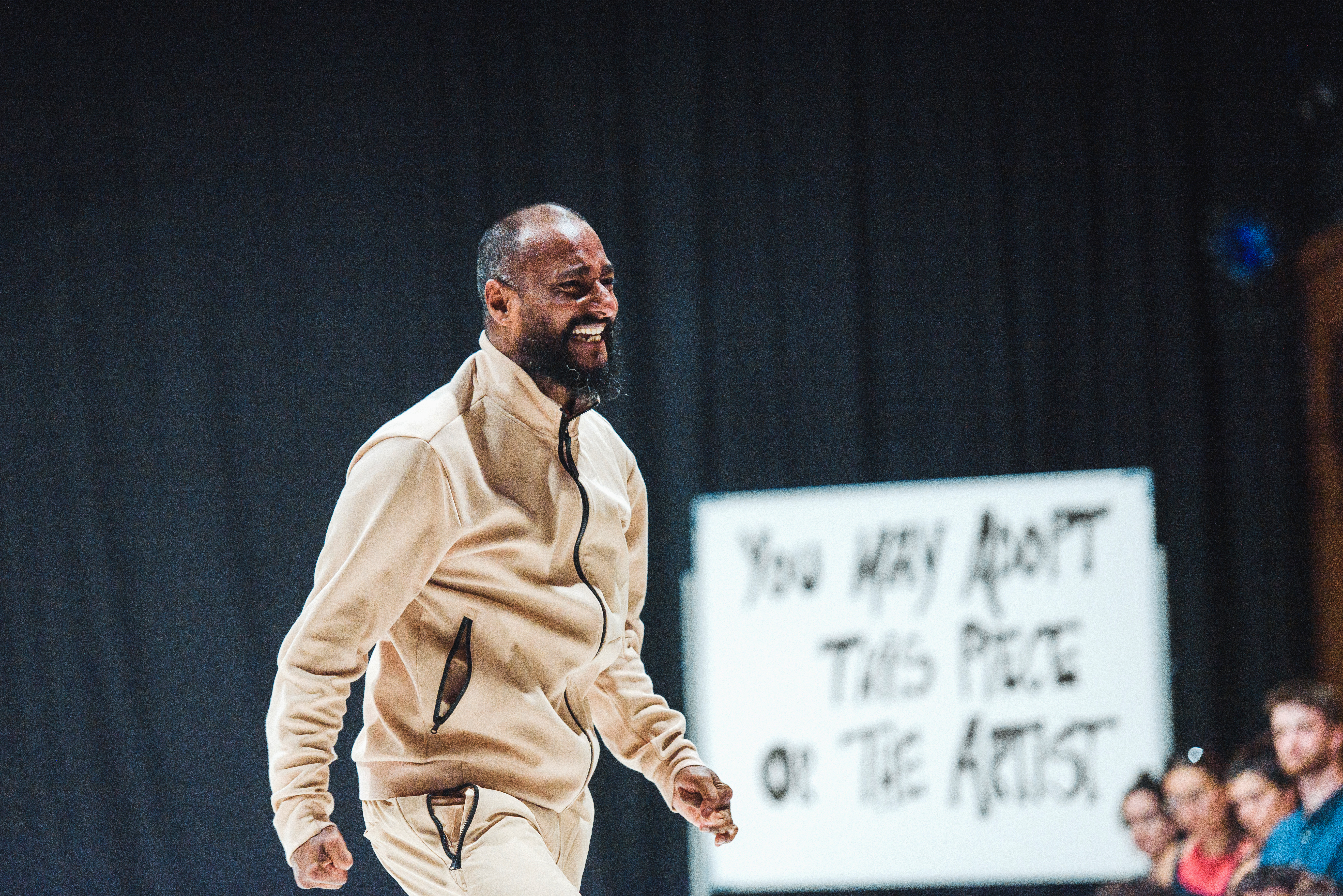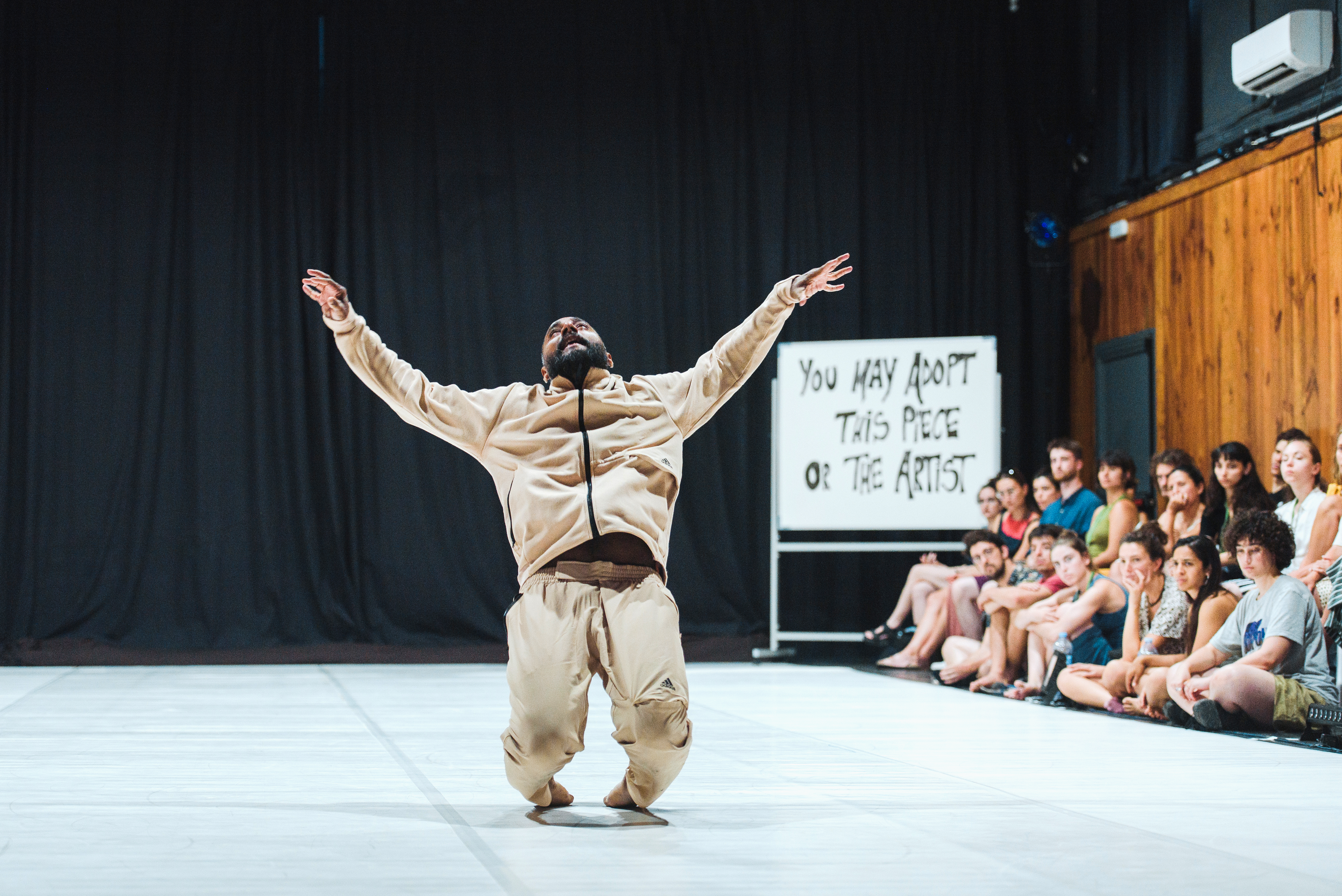There are many ways to describe Rakesh Sukesh. He is a prolific dancer. A movement and yoga instructor. A Malayalee from Malabar. An experienced practitioner of Kalaripayattu. An aspiring global citizen (restrained by his Indian passport). What happens when all these embodied identities are glossed over, to only be seen as someone with blueish-brown skin? because i love diversity (this micro-attitude, we all have it) is an autobiographical performance where Rakesh Sukesh delves into the harmful, absurd and comical aspects of his life as a brown immigrant and artist in Europe. It is playing at PuSh International Performing Arts Festival from January 22-24, 2024.

Early on in the show, Rakesh divulges that he belongs to a family of tailors, they live in the Malabar region of the southwest Indian state – Kerala. He then goes on to demonstrate an incredible ability to weave a rich tapestry – stitching together the personal, social and cultural fabrics of his multifaceted identity. After living in and visiting various European cities for 18 years, Rakesh has had numerous experiences where his racialized body has been subjected to unrelenting scrutiny. He channels the bodily memories of racist micro-aggresions into improvisational body movement, drawing from his expertise in Kalaripayattu, yogic movement & breathwork and contemporary dance. He takes us on a journey into his purgatory state of mind – trance-like gestures radiating from the depth of his insides onto his lips and his limbs; bolstered by direct eye-contact with his audience – Rakesh dares us to sit with the visceral discomfort and bear witness to the corporeal manifestations of his racial trauma.
Rakesh peppers the performance with anecdotes, rants and a liberal dose of education about Indian (dare I say, Brahmanical) culture. Demonstrations of Ardha Chandrasana and Adho Mukha Svanasana are followed by a lesson on how to pronounce these Sanskrit phrases – a cheeky rebuttal to the white-washing of these ancient Indian practices by Caucasians. Concepts that are frequently appropriated in western discourse like pranayama and karma become powerful visual metaphors in this stirring performance. By being present in this shared space, we the audience are embedded in a transformative, healing experience. Rakesh confronts the profound sadness of internalized colorism and family disapproval with naked vulnerability. Then he goes on to embody cultural rootedness and ancestral resilience when he adorns himself in a kachha (loincloth), drapes himself in layers of sarees and invokes his caste-community’s ritual practice – Theyyam.

At one point in the performance, Rakesh does a head-stand, Sirsasana, as he chants Sanskrit slokas that preach sahana (tolerance) and shanti (peace). In the centuries leading up to India’s colonization by the British, the majority of the subcontinent’s native population was subjected to Brahmanical hegemony. Sanskrit scriptures and yogic practices were strictly gate kept by the dominant priestly class. By mastering the knowledge of yoga, Rakesh inverts centuries of systemic exclusion propagated by the very Sanskrit scriptures that preach universal peace.
Representations of South Asian culture in the western sphere usually tend to uplift ideals of the diaspora’s dominant caste-elite. Decentering Sanskritic pedagogy is an integral aspect of decolonizing our cultural institutions. In the coming years, I hope to witness subversive artistic voices that amplify and highlight the vivid diversity of India’s cultural fabric. Rakesh’s jaw-dropping invocation of Theyyam is an instrumental stepping stone in that direction.
-Annapoorna Shruthi
